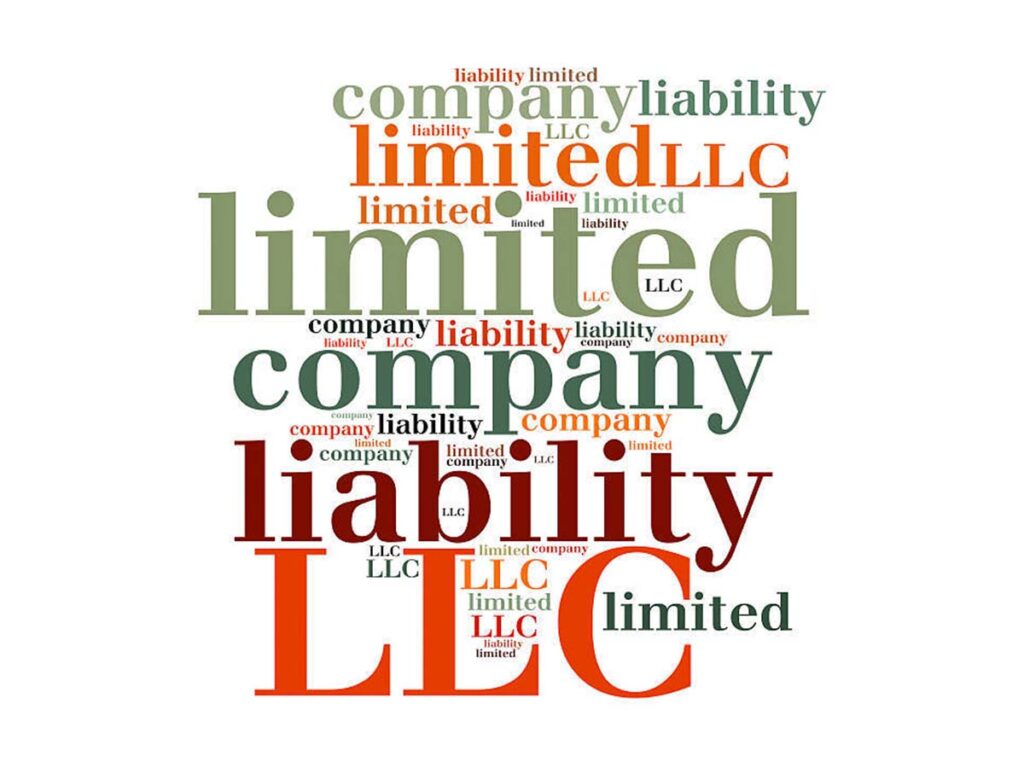Operating Agreement: Roles, Profits, and Decision-Making

An operating agreement is a legal document that outlines the rules and regulations of a real estate syndication. This agreement is crucial in ensuring that all team members are aware of their roles and responsibilities, and it sets the framework for how decisions will be made, profits and losses will be distributed, and other key topics. The following are some of the key topics typically covered in a real estate syndication operating agreement: Roles and Responsibilities: This section outlines the roles and responsibilities of each team member in the syndication. This includes the responsibilities of the sponsor, the investors, and any other team members involved in the syndication. It also outlines any expectations for the team members, such as the amount of time and effort required to participate in the syndication. Capital Contributions: This section details the amount of capital required from each investor, the timing of contributions, and any penalties for late or missed payments. It also outlines any requirements for additional capital contributions in case of unforeseen expenses or other financial needs. Profits and Losses: This section outlines how profits and losses will be distributed among the investors and sponsor. It typically includes the preferred return or distribution waterfall, which outlines the order in which profits are distributed to investors and the sponsor. It may also include any provisions for the sharing of profits above and beyond the preferred return. Decision-Making: This section outlines how decisions will be made within the syndication. It typically includes provisions for voting rights, such as the number of votes required for a decision to be made, and any limitations on the types of decisions that can be made without unanimous agreement. Management: This section outlines the management structure of the syndication. It typically includes provisions for the appointment and removal of the sponsor or other team members, and any limitations on the authority of the sponsor. Term and Termination: This section outlines the term of the syndication and any provisions for early termination. It may also include provisions for the sale or disposition of the property. Dispute Resolution: This section outlines the process for resolving disputes within the syndication. It may include provisions for mediation or arbitration, as well as any limitations on the types of disputes that can be resolved through these processes. A well-written operating agreement is crucial in ensuring the success of a real estate syndication. It should cover all of the key topics outlined above, and it should be written in clear and concise language that is easily understood by all team members.
The Top Conferences and Networking Events

Top Conferences and Networking Events for Finding the Right Investment Group: Investing in real estate can be a lucrative venture, but it often requires a significant amount of capital. Whether you’re a seasoned investor or a newcomer to the industry, finding the right investment group can make all the difference in your success. Here, we will explore some tips for finding the right core investment group and provide a list of real estate investment conferences and networking events to help you meet potential investors. When it comes to finding the right core investment group, there are a few key things to keep in mind. First, you’ll want to consider your investment goals and strategy. Are you looking to invest in residential or commercial properties? Do you prefer to focus on short-term or long-term investments? Understanding your own investment preferences can help you find a group that aligns with your goals. Next, it’s important to do your research. Look for groups that have a track record of success in the types of investments you’re interested in. You can also check out online forums and social media groups to see what other investors are saying about different investment groups. Finally, don’t be afraid to reach out to potential groups and ask questions about their investment philosophy and past performance. Once you’ve identified potential investment groups, it’s time to start networking. Attending real estate investment conferences and networking events can be a great way to meet potential investors and build relationships within the industry. Here are a few events to consider: The Real Estate Investors Expo – This annual event brings together real estate investors, developers, and industry experts from around the country. Attendees can participate in workshops, panel discussions, and networking events. Real Estate Investment World – This event focuses on commercial real estate investments and brings together investors, fund managers, and property owners from around the world. National Association of Real Estate Investment Trusts (NAREIT) Annual Conference – This conference is specifically designed for REIT investors and covers a wide range of topics related to REIT investments. IMN Real Estate Family Office and Private Wealth Management Forum – This event is geared towards high-net-worth individuals and family offices looking to invest in real estate. Attendees can participate in panel discussions, networking events, and one-on-one meetings with investment managers. The Real Deal Real Estate Showcase and Forum – This event is held in several major cities throughout the US and brings together investors, brokers, and industry professionals for networking and education sessions. Finding the right core investment group is crucial for success in real estate investing. By considering your investment goals and doing your research, you can identify potential groups that align with your strategy. Attending real estate investment conferences and networking events can also be a great way to meet potential investors and build relationships within the industry. With the right group and networking opportunities, you can take your real estate investments to the next level.
The Benefits of Investing in Multi-Family, Office, Retail, and Industrial Properties

The Benefits of Investing in a real estate syndication: syndication is a popular investment strategy where a group of investors pool their money together to purchase and manage real estate properties. This type of investment offers many benefits, including access to larger, high-value real estate properties that would be difficult or impossible to afford individually, as well as the opportunity to benefit from the expertise of professional real estate managers. In this article, we will explore the different types of real estate that you can invest in a real estate syndication, as well as the benefits of investing in each type. Multi-family properties: Multi-family properties are residential properties that consist of more than one unit, such as apartments or condominiums. Investing in a multi-family property syndication can provide a steady stream of rental income, as well as the potential for long-term appreciation. As an investor, you can benefit from the expertise of professional property managers who can help maximize rental income and ensure that the property is well-maintained. Office buildings: Investing in an office building syndication can provide a stable source of rental income from long-term leases, as well as the potential for appreciation as the value of the property increases. Office buildings are typically located in prime locations, which can attract high-quality tenants and help to ensure a steady stream of rental income. Retail properties: Retail properties include shopping centers, malls, and standalone stores. Investing in a retail property syndication can provide an opportunity to benefit from the long-term growth potential of the retail sector, as well as the potential for rental income from retail tenants. Retail properties are often located in high-traffic areas, which can help to attract tenants and ensure a steady stream of rental income. Industrial properties: Industrial properties include warehouses, distribution centers, and manufacturing facilities. Investing in an industrial property syndication can provide an opportunity to benefit from the long-term growth potential of the industrial sector, as well as the potential for rental income from industrial tenants. Industrial properties are often located in strategic locations that are close to transportation hubs, which can help to attract tenants and ensure a steady stream of rental income. Investing in a real estate syndication can provide many benefits, including: Diversification: Investing in a syndication allows you to diversify your portfolio across different types of real estate properties, which can help to reduce risk and increase returns. Professional management: Syndications are typically managed by professional real estate managers who have extensive experience in managing real estate properties. This can help to maximize rental income, ensure that the property is well-maintained, and protect your investment. Access to high-value properties: Real estate syndications allow you to invest in high-value properties that would be difficult or impossible to afford individually. This can help to increase the potential for long-term appreciation and rental income. Real estate syndication is a powerful investment strategy that can provide access to high-value real estate properties, as well as the expertise of professional real estate managers. By investing in a syndication, you can diversify your portfolio across different types of real estate properties and benefit from the long-term growth potential of the real estate sector. Whether you choose to invest in multi-family properties, office buildings, retail properties, or industrial properties, real estate syndication can be an effective way to invest in real estate and achieve your investment goals.
1031 Exchange – The Ultimate Tax-Deferral Strategy

A 1031 Exchange is a method for Real estate investors are always looking for ways to maximize their profits and minimize their taxes. One strategy that has gained popularity in recent years is the 1031 exchange. This tax-deferment tactic allows investors to sell one property and use the proceeds to purchase another property without paying capital gains taxes on the sale. In this article, we’ll explore what a 1031 exchange is, how it works, and its benefits for real estate investors. What is a 1031 exchange? A 1031 exchange, also known as a like-kind exchange, is a section of the U.S. tax code that allows real estate investors to defer paying capital gains taxes when they sell a property and use the proceeds to purchase another property of equal or greater value. The term “like-kind” refers to the fact that the properties involved in the exchange must be of the same nature or character, such as two rental properties or two commercial buildings. This means that an investor can’t exchange a residential property for a vacation home or a piece of art. How does a 1031 exchange work? To initiate a 1031 exchange, the investor must first sell their property and identify a replacement property within 45 days of the sale. They must then close on the new property within 180 days of the sale. The proceeds from the sale are held by a qualified intermediary, who then uses them to purchase the replacement property. The investor never takes possession of the funds, so they avoid paying capital gains taxes on the sale. Benefits of a 1031 exchange The main benefit of a 1031 exchange is that it allows investors to defer paying capital gains taxes, which can be substantial. Capital gains taxes are calculated based on the difference between the purchase price and the sale price of a property, minus any depreciation claimed over the years. By deferring these taxes, investors can use the money they would have paid in taxes to purchase a more valuable property or to invest in other opportunities. Another advantage of a 1031 exchange is that it allows investors to diversify their real estate holdings without incurring a tax liability. For example, an investor may want to sell a rental property in a high-risk market and use the proceeds to purchase a property in a more stable market. Without a 1031 exchange, the investor would be subject to capital gains taxes on the sale of the original property, which could significantly reduce their profits. Finally, a 1031 exchange can help investors to increase their cash flow by acquiring a property that generates more income. For example, an investor may sell a rental property that generates $10,000 per year in rental income and use the proceeds to purchase a larger property that generates $20,000 per year. By deferring their taxes, the investor can increase their annual income and their overall return on investment. A 1031 exchange can be a powerful tool for real estate investors who want to maximize their profits and minimize their tax liability. By deferring capital gains taxes, investors can reinvest their profits in new opportunities and diversify their real estate holdings. However, the rules surrounding 1031 exchanges can be complex, so it’s important to consult with a qualified tax advisor and real estate professional before initiating an exchange.
Accredited & Non-Accredited Investors: Securities Exemptions

Accredited and Non-Accredited Investors and Securities Exemptions. Investing in real estate syndication can be a great way to diversify your investment portfolio and potentially earn significant returns. However, it’s important to understand the different types of investors in real estate syndication and the securities laws and regulations that govern them. Investors in real estate syndication can be divided into two categories: accredited and non-accredited investors. Accredited investors are individuals or entities that meet certain financial criteria set by the SEC. They typically have a net worth of at least $1 million or an annual income of at least $200,000. Non-accredited investors, on the other hand, do not meet these financial criteria. But just because an investor is non-accredited doesn’t mean they can’t participate in a real estate syndication. If the syndication is set up with proper securities exemptions, non-accredited investors can also participate. These securities exemptions are provided under Regulation D of the Securities Act of 1933, which allows issuers to raise capital without registering with the SEC. However, there are limits to the number of non-accredited investors who can participate in a syndication. Under Regulation D, issuers can offer securities to up to 35 non-accredited investors, who are considered sophisticated investors. A sophisticated investor is someone who has sufficient knowledge and experience in financial and business matters to evaluate the risks and merits of an investment opportunity. To qualify as a sophisticated investor, an individual must have either a degree in business, finance, or accounting, or at least five years of experience in a related field. Real estate syndication can be a lucrative investment opportunity, but it’s important to do your due diligence and understand the risks involved. Before investing in a syndication, it’s important to research the sponsor’s track record, the property’s location and condition, and the terms of the investment, including the expected return and any fees or expenses. Investing in real estate syndication can be a passive way to generate income and build wealth over the long term. By understanding the different types of investors and the securities laws and regulations that govern them, you can make informed investment decisions and potentially reap significant rewards. Whether you are an accredited investor or a sophisticated non-accredited investor, real estate syndication can be a valuable addition to your investment portfolio.
Limited Partnerships, Joint Ventures, and LLCs

Limited partnerships, joint ventures, or LLCs have become a popular way for investors to pool their resources and invest in large-scale real estate projects that they wouldn’t be able to pursue on their own. Syndication can take several forms, In this article, we’ll take a closer look at each of these forms of real estate syndication and explore their advantages and disadvantages. Limited Partnerships A limited partnership is a type of partnership where there are two types of partners: general partners and limited partners. General partners are responsible for managing the partnership and making investment decisions. Limited partners, on the other hand, contribute capital but have limited liability and no management responsibilities. The advantages of a limited partnership are that it allows investors to participate in a real estate investment without taking on management responsibilities, and it limits their liability to the amount of their investment. However, limited partners typically have less control over the investment than general partners, and they may not be able to participate in decision-making. Joint Ventures A joint venture is a partnership between two or more parties for a specific purpose or project. In a real estate joint venture, the parties typically contribute capital, expertise, or both. Unlike a limited partnership, joint ventures typically have no general or limited partners, and all parties have an equal say in decision-making. The advantages of a joint venture are that it allows parties to combine their resources and expertise to pursue a common goal. All parties have an equal say in decision-making, and there is no hierarchy between partners. However, joint ventures can be more complex than other forms of syndication, as all parties must agree on decisions, and there may be disagreements over the direction of the investment. LLCs A limited liability company (LLC) is a type of business entity that combines the liability protection of a corporation with the tax benefits of a partnership. In a real estate LLC, investors are members of the LLC and contribute capital, but they are not liable for the company’s debts or obligations. The advantages of an LLC are that it offers investors liability protection, pass-through taxation, and flexibility in the management structure. Members can participate in management or hire a professional manager to handle day-to-day operations. However, LLCs can be more complex to set up than other forms of syndication, and they may have higher administrative costs. Real estate syndication can take several forms, including limited partnerships, joint ventures, or LLCs. Each form of syndication has its advantages and disadvantages, and investors should carefully consider which option is best for them. Whether you’re a seasoned real estate investor or just starting, syndication can be a powerful tool for achieving your investment goals.
Breaking Down Real Estate Syndication: How It Works and Why You Should Consider It

Part 1: Real estate syndication is a term that’s becoming increasingly popular in the world of real estate investment. If you’re unfamiliar with the concept, don’t worry! In this article, we’ll break down real estate syndication, explain how it works, and why you should consider it as a viable investment option. What is Real Estate Syndication? In simple terms, real estate syndication is the process of pooling resources and funds from multiple investors to purchase a property. These investors can be passive or active, meaning they can either play an active role in the management of the property or take a more hands-off approach. Real estate syndication can take several forms, including limited partnerships, joint ventures, or LLCs. The structure chosen will depend on the goals of the investors and the sponsor (the person or company leading the syndication), as well as the size and complexity of the investment. How Does Real Estate Syndication Work? The process of real estate syndication typically involves several key steps: 1.The sponsor identifies a property that they believe is a good investment opportunity and creates a business plan outlining the details of the investment. 2.The sponsor then seeks out potential investors to participate in the syndication. These investors can be accredited (meaning they meet certain financial criteria) or non-accredited if the syndication is set up with proper securities exemptions. 3.Once the sponsor has secured enough investors to meet the required investment amount, they form a legal entity to hold the property, such as a limited partnership or LLC. 4.The investors contribute funds to the entity in exchange for an ownership interest in the property. 5.The sponsor manages the day-to-day operations of the property, including leasing, maintenance, and accounting. 6.The investors receive returns on their investment based on the performance of the property, which can take the form of rental income, capital appreciation, or both. 7. The property is ultimately sold, typically using the 1031 exchange method, to defer taxes and another property is acquired. When the syndication is closed the properties are sold and the remaining funds are returned to the members. Why Should You Consider Real Estate Syndication? Real estate syndication offers several advantages for investors. Firstly, it allows individuals to invest in larger and more complex properties than they would be able to on their own. This can result in higher returns and greater diversification of their portfolio. Secondly, real estate syndication allows investors to take a more passive role in the management of the property, which is ideal for those who don’t have the time or expertise to manage a property on their own. Lastly, real estate syndication provides investors with access to the knowledge and expertise of the sponsor, who typically has a proven track record in real estate investment. Conclusion Real estate syndication is a powerful tool for investors looking to enter the world of real estate investment or diversify their portfolio. By pooling resources with other investors and leveraging the expertise of a sponsor, investors can gain access to larger and more complex properties, while taking a more passive role in the management of the property. If you’re considering real estate syndication as an investment option, be sure to consult with a financial advisor to determine if it’s the right choice for you. Our Syndication Series: Read all 5 Parts Part 1: In Our Syndication Series Breaking Down Real Estate Syndication: How It Works and Why You Should Consider It Part 2: In Our Syndication Series The Titans of Real Estate Syndication: Meet the Managers Behind the Biggest Deals Part 3: In Our Syndication Series Creating a Real Estate Syndication: A Step-by-Step Guide to Building Your Investment Team Part 4: In Our Syndication Series Timing is Everything: When to Launch Your Real Estate Syndication for Maximum Impact Part 5: In Our Syndication Series Choosing the Right State for Your Real Estate Syndication: How to Evaluate Tax Incentives, Market Conditions, and More
The Titans of Real Estate Syndication: Meet the Managers Behind the Biggest Deals

Part 2: Real estate syndication has become a popular way for investors to pool their resources and invest in large commercial real estate deals. While the idea of real estate syndication is not new, the industry has grown in recent years, thanks to the success of some of the biggest syndication managers in the business. These titans of real estate syndication have become household names in the industry and have been responsible for some of the biggest deals in recent years. In this article, we will take a closer look at these real estate syndication managers and explore their success stories. 1.Blackstone Group Blackstone Group is one of the largest alternative asset managers in the world, with more than $619 billion in assets under management. Blackstone’s real estate division, Blackstone Real Estate, has invested in some of the most iconic properties in the world, including the Waldorf Astoria hotel in New York City and the Willis Tower in Chicago. Blackstone has been successful in real estate syndication because of its expertise in identifying undervalued properties and its ability to execute complex transactions. The company’s investment strategy has been to acquire properties that are underperforming and then use its expertise to add value to the property, whether that’s through renovations or better management. 2.Brookfield Asset Management Brookfield Asset Management is another giant in the world of real estate syndication. The company manages more than $575 billion in assets, including $195 billion in real estate assets. Brookfield’s real estate division, Brookfield Property Partners, has invested in some of the most prestigious properties in the world, including the Canary Wharf in London and the Brookfield Place office complex in New York City. Brookfield’s success in real estate syndication has been due to its expertise in identifying undervalued properties, as well as its ability to finance large real estate transactions. The company is known for its ability to structure complex deals that involve multiple investors and financing sources. 3.Starwood Capital Group Starwood Capital Group is a private investment firm that manages more than $86 billion in assets, including $15 billion in real estate assets. Starwood’s real estate division, Starwood Property Trust, has invested in a variety of real estate assets, including office buildings, retail properties, and multifamily housing. Starwood’s success in real estate syndication has been due to its expertise in identifying undervalued properties and its ability to structure complex deals. The company is known for its ability to create value through strategic renovations and better management. 4.Carlyle Group Carlyle Group is a global investment firm that manages more than $246 billion in assets, including $35 billion in real estate assets. Carlyle’s real estate division, Carlyle Realty Partners, has invested in a variety of real estate assets, including office buildings, industrial properties, and multifamily housing. Carlyle’s success in real estate syndication has been due to its expertise in identifying undervalued properties and its ability to structure complex deals. The company is known for its ability to create value through strategic renovations and better management. 5.KKR KKR is a global investment firm that manages more than $367 billion in assets, including $16 billion in real estate assets. KKR’s real estate division, KKR Real Estate, has invested in a variety of real estate assets, including office buildings, hotels, and multifamily housing. KKR’s success in real estate syndication has been due to its expertise in identifying undervalued properties and its ability to structure complex deals. The company is known for its ability to create value through strategic renovations and better management. Real estate syndication has become a popular way for investors to pool their resources and invest in large commercial real estate deals. The titans of real estate syndication have become household names in the industry, and their success stories have inspired many to invest in real estate. These syndication managers have been successful because of their expertise in identifying undervalued properties and their ability to execute complex transactions. They have also been able to create value through strategic renovations and better management, which has helped them to attract investors and generate high returns. Investing in real estate syndication can be a great way to diversify your investment portfolio and generate passive income. However, it is important to do your due diligence before investing in any syndication deal. You should carefully review the syndication manager’s track record, investment strategy, and fees before making a decision. In addition, it is important to have a good understanding of the risks involved in real estate syndication. Like any investment, there is no guarantee of returns, and you could potentially lose your entire investment. In summary, the titans of real estate syndication have become successful by identifying undervalued properties, executing complex transactions, and creating value through strategic renovations and better management. If you are considering investing in real estate syndication, make sure to do your due diligence and understand the risks involved. With the right investment strategy and a little bit of luck, you too could become a successful real estate syndicator. Our Syndication Series: Read all 5 Parts Part 1: In Our Syndication Series Breaking Down Real Estate Syndication: How It Works and Why You Should Consider It Part 2: In Our Syndication Series The Titans of Real Estate Syndication: Meet the Managers Behind the Biggest Deals Part 3: In Our Syndication Series Creating a Real Estate Syndication: A Step-by-Step Guide to Building Your Investment Team Part 4: In Our Syndication Series Timing is Everything: When to Launch Your Real Estate Syndication for Maximum Impact Part 5: In Our Syndication Series Choosing the Right State for Your Real Estate Syndication: How to Evaluate Tax Incentives, Market Conditions, and More
Creating a Real Estate Syndication: A Step-by-Step Guide to Building Your Investment Team

Part 3: Real estate syndication has become an increasingly popular investment strategy for those seeking to diversify their portfolio and generate passive income. However, creating a real estate syndication can seem daunting, especially for those who are new to the industry. In this step-by-step guide, we will walk you through the process of building your real estate investment team. Step 1: Define Your Investment Strategy Before you can start building your investment team, you need to define your investment strategy. What type of real estate are you interested in investing in? Are you looking to invest in commercial or residential properties? What is your risk tolerance? Once you have a clear understanding of your investment strategy, you can start looking for investors and potential team members who share your vision. Step 2: Find Your Core Investment Group The success of your real estate syndication will depend on finding the right core investment group. This group should consist of individuals who are financially stable and share your investment strategy. You can start by reaching out to family and friends who may be interested in investing in real estate. You can also attend real estate investment conferences and networking events to meet potential investors. Step 3: Assemble Your Investment Team Once you have your core investment group, it’s time to assemble your investment team. This team should consist of individuals with expertise in areas such as legal, accounting, and real estate management. You may also want to consider hiring a real estate broker to help you find potential properties. Step 4: Develop Your Operating Agreement Your operating agreement is a crucial document that outlines the rules and regulations of your real estate syndication. This document should cover topics such as the roles and responsibilities of each team member, how profits and losses will be distributed, and how decisions will be made. Step 5: Identify Potential Properties Now that you have your investment team in place, it’s time to start identifying potential properties. You can do this by working with a real estate broker or by conducting your own research. Look for properties that fit your investment strategy and are located in areas with strong growth potential. Step 6: Perform Due Diligence Before making an offer on a property, it’s important to perform due diligence. This involves conducting a thorough analysis of the property, including the physical condition, financial history, and market potential. You should also review any legal documents related to the property. Step 7: Raise Capital Once you have identified a potential property, it’s time to raise capital. You can do this by reaching out to your core investment group, as well as other potential investors. Be sure to provide them with all of the necessary information about the property and the real estate syndication. Step 8: Close the Deal If you have successfully raised the necessary capital, it’s time to close the deal. This involves signing a purchase agreement and transferring the funds. You should also work with your legal and accounting team to ensure that all of the necessary paperwork is in order. Creating a real estate syndication can be a complex process, but by following these steps, you can build a strong investment team and successfully invest in real estate. Remember to define your investment strategy, find your core investment group, assemble your investment team, develop your operating agreement, identify potential properties, perform due diligence, raise capital, and close the deal. With a little bit of hard work and a strong investment team, you can achieve success in real estate syndication. Our Syndication Series: Read all 5 Parts Part 1: In Our Syndication Series Breaking Down Real Estate Syndication: How It Works and Why You Should Consider It Part 2: In Our Syndication Series The Titans of Real Estate Syndication: Meet the Managers Behind the Biggest Deals Part 3: In Our Syndication Series Creating a Real Estate Syndication: A Step-by-Step Guide to Building Your Investment Team Part 4: In Our Syndication Series Timing is Everything: When to Launch Your Real Estate Syndication for Maximum Impact Part 5: In Our Syndication Series Choosing the Right State for Your Real Estate Syndication: How to Evaluate Tax Incentives, Market Conditions, and More
Timing is Everything: When to Launch Your Real Estate Syndication for Maximum Impact

Part 4: Timing is everything when it comes to launching a successful real estate syndication. Real estate syndication has become a popular investment strategy for those looking to diversify their portfolio and generate passive income. In this article, we will discuss when to launch your real estate syndication for maximum impact. Consider Market Trends One of the most important factors to consider when timing your real estate syndication is market trends. It’s important to launch your syndication when the market is strong and demand for real estate investments is high. You can monitor market trends by analyzing real estate data and consulting with industry experts. Launching your syndication during a time of high demand can help you to attract more investors and generate higher returns Have a Clear Investment Strategy Another important factor to consider when timing your real estate syndication is having a clear investment strategy. Your investment strategy should be aligned with current market trends and should be well-defined. When you have a clear investment strategy, you can target the right investors and create a sense of urgency around your syndication launch. Be Mindful of Seasonal Trends Seasonal trends can also have an impact on the success of your real estate syndication. For example, many investors tend to be more active in the spring and summer months. Launching your syndication during these months may help you to attract more investors and generate more interest in your investment opportunity. However, it’s important to note that seasonal trends may vary depending on your target audience and the type of real estate investment you are offering. Be sure to research seasonal trends specific to your investment strategy and target audience. Consider Economic Factors Economic factors can also have an impact on the success of your real estate syndication. When the economy is strong, investors tend to be more active and more willing to invest in real estate. Conversely, when the economy is weak, investors may be more cautious and less likely to invest. It’s important to monitor economic factors such as interest rates, inflation, and job growth when timing your real estate syndication. Launching your syndication during a time of economic stability and growth can help you to attract more investors and generate higher returns. Timing is everything when it comes to launching a successful real estate syndication. Consider market trends, have a clear investment strategy, be mindful of seasonal trends, and consider economic factors when timing your syndication launch. With careful planning and research, you can launch your real estate syndication for maximum impact and achieve success in your investment endeavors. Our Syndication Series: Read all 5 Parts Part 1: In Our Syndication Series Breaking Down Real Estate Syndication: How It Works and Why You Should Consider It Part 2: In Our Syndication Series The Titans of Real Estate Syndication: Meet the Managers Behind the Biggest Deals Part 3: In Our Syndication Series Creating a Real Estate Syndication: A Step-by-Step Guide to Building Your Investment Team Part 4: In Our Syndication Series Timing is Everything: When to Launch Your Real Estate Syndication for Maximum Impact Part 5: In Our Syndication Series Choosing the Right State for Your Real Estate Syndication: How to Evaluate Tax Incentives, Market Conditions, and More



